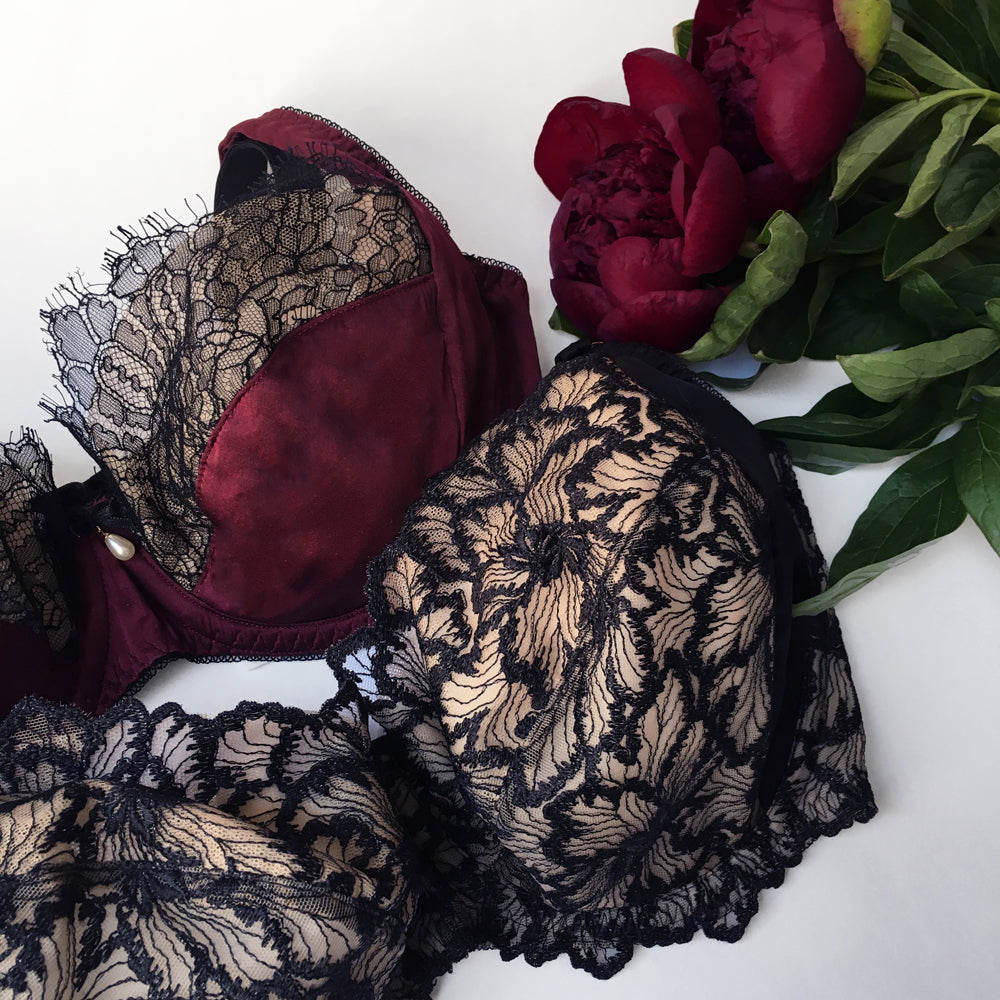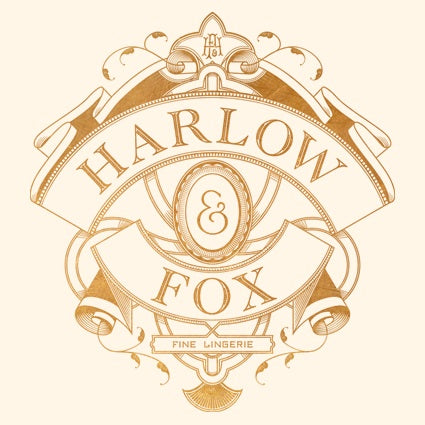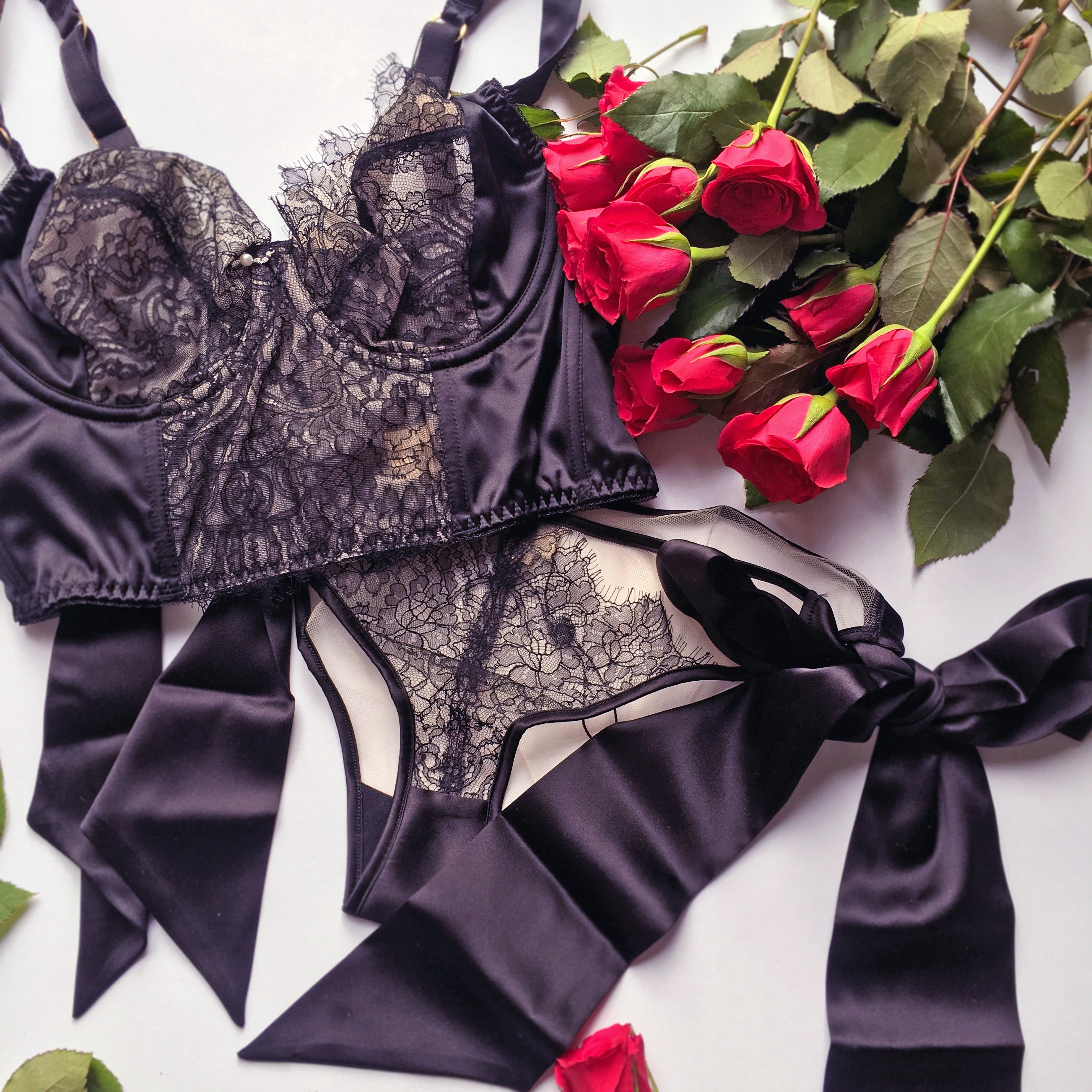What Are Bra Sister Sizes?

Bra sister sizes have the same cup volume, despite different band or cup letter sizes, and are your new best friend in finding the best fitting bra for you!
First, some bra sizing basics.
Bra sizing is made up of two parts. The band, which is a number (such as 32 or 40) referring to the measurement around your ribcage, where the bra underband sits.
Secondly, a letter (such as DD or F) which refers to the cup volume.
The volume of the letter is entirely dependent on the band size it is paired with. A 38DD will be one cup size larger than a 36DD, which is in turn one cup size larger than a 34DD, for example. (Looking for more on the mysteries of “DD cup” as a size? DD cup sizes explained has you covered!)
However, it does mean your cup letter will need to change if you change the band size but would like to keep the same cup volume.
The basic rule to remember is that if you go up a band size, you will need to go down a cup size to keep the volume the same. The reverse also being true, if you go down a band size, to go up a cup.
For example, if you want to go up a band from a 32F, you’ll switch to a 34E. To go down a band, it would be 30FF.
Use the sister size chart below for a handy reference of which way to go, and just move across the row to change bands, or up/down for changing cup.
Bra Sister Size Chart
| 28E | 30DD | 32D | 34C | |||
|---|---|---|---|---|---|---|
| 28F | 30E | 32DD | 34D | 36C | ||
| 28FF | 30F | 32E | 34DD | 36D | 38C | |
| 28G | 30FF | 32F | 34E | 36DD | 38D | 40C |
| 28GG | 30G | 32FF | 34F | 36E | 38DD | 40D |
| 28H | 30GG | 32G | 34FF | 36F | 38E | 40DD |
| 30H | 32GG | 34G | 36FF | 38F | 40E | |
| 32H | 34GG | 36G | 38FF | 40F | ||
| 34H | 36GG | 38G | 40FF |
Though this does all mean some extra pausing for thought, once you’ve cracked the rules of it, it makes it so much easier to find precisely the size you need!

All of these bras here are sister sizes of each other - the cup is exactly the same, but each has a slightly larger band than the next.
Want a quick reminder of which way to go? Choose which sizing problem you're trying to fix below and we’ll let you know what your next step is.
Quick Bra Size Fix Guide
Band too large, cup fitting well
Go down one band size, up one cup letter - eg 34E to 32F
Band too large, cup too small
Go down one band size, up two cup letters - eg 34E to 32FF
Band too large, cup too large
Go down one band size, keep cup letter the same - eg 34E to 32E
Collapsible content
Band too small, cup fitting well
Go up one band size, down one cup letter - eg 32F to 34E
Band too small, cup too small
Go up one band size, keep the cup letter the same - eg 32F to 34F
Band too small, cup too large
Go up one band size, down two cup letters - eg 32F to 34DD
Collapsible content
Band fitting well, cup too small
Keep band the same, go up one cup letter - eg 34E to 34F
Band fitting well, cup too large
Keep band the same, go down one cup letter - eg 34E to 34DD

Remember that all brands (and all bras!) will fit a little differently, and sizing in itself is just a system to guide you in finding garments that fit and feel the way you like. A number on a tag is just a way to help you choose an item – so having multiple sizes in your lingerie drawer is totally normal.
Benefits of sister sizes
So now you know how to find your sister size – how is that actually going to help you?
-
1. Time saving
One way is making pinpointing your size in a particular brand much quicker, without needing to try on lots of bras.
If you’re trying on a 38F bra and it’s a bit loose in the band, but seems a good fit in the cup, you can use the rules of sister sizes to know that you’ll need to go up a cup letter size when you exchange it for a smaller band, to keep that part the same. So, you’ll switch it for a 36FF, instead of the 36F you might have gone for if you didn’t know about sister sizes - which would have ended up giving you a smaller cup as well as a smaller band.
Especially with online shopping, saving yourself multiple returns and exchanges from not knowing this insider info is always going to be a great bonus!
-
2. Size variations
If you find you fluctuate in size a fair amount, whether from hormonal variations affecting breast fullness throughout the month or varying changes in weight over time, sister sizes can help you always have a well-fitting bra on hand. By collecting a “family” of different bra sizes, you can know you’ll always have one you enjoy wearing and that feels good.
-
3. New possibilities
Another perk is the possibility of shopping with brands who don’t make your regular size. For example, if you usually take a 34E and see a bra you love that only goes up to DD cups, you could order a 36DD and wear it on the tightest hook to see if that still gives you the support you’d like and feels comfortable, instead of ruling it out entirely. This works best if you’re open to a little flexibility or know that a brand has quite snug or loose fitting bands so can shift easily one way or another.
Limitations of sister sizes
Though sister sizes are a great way to open up more understanding around sizing, they do work best
adjusting no more than one size up or down, sometimes two if you’re finding a particular bra fitting very differently to how you expected. Beyond that, the garment will have changed enough that it’s not likely it will be able to give you adequate support or a comfortable fit.
Different size brackets will also specialise in getting the fit right for that segment, so expectations can be very different. For example, trying to sister size from a 32E into a 38C is going to not only end up with a band that feels different, but it’s also going to be designed for the lighter support of so-called “core” sizes. This could mean an underwire that’s thinner and more bendy, or with less shaping on the cup itself. (Though band sizes on “core” sizes also use a very different measuring system to full bust specialist brands too – head over to our DD cup sizes guide to learn more about this slightly complicated industry difference!)

